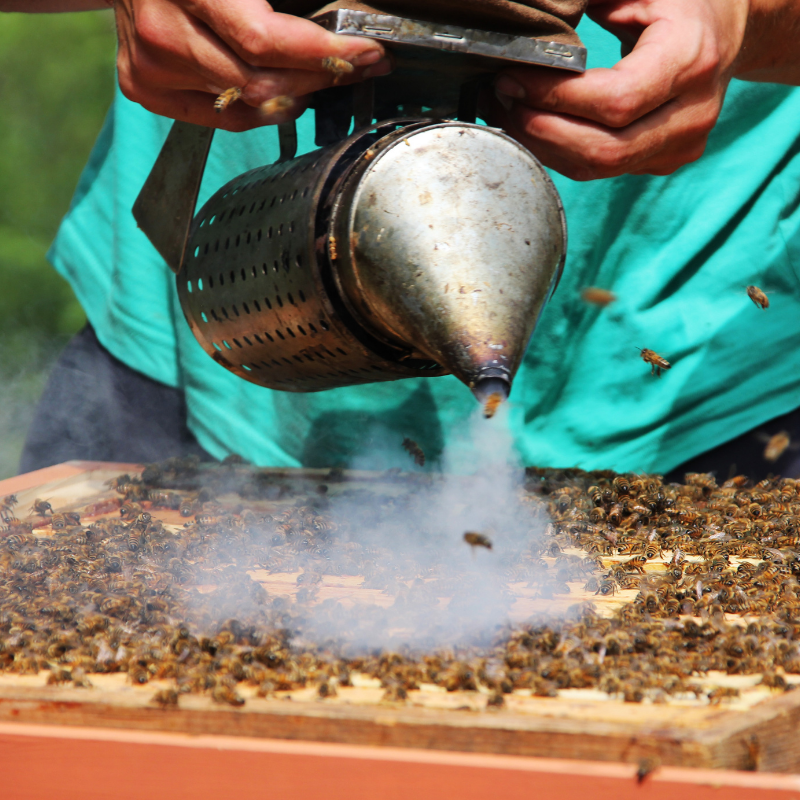How to avoid getting sick during the cold season?!
The immune system is a collection of different organs, cells and substances that function in our body to protect us from diseases. The human body is a good environment for various viruses, bacteria, fungi and parasites, and the immune system limits their penetration and development in our body, ensuring good health. Immunity is a whole system that helps recognize foreign microorganisms, and its main task is to protect the body.
Can we strengthen our immune system? This is not quite the right question. In fact, we don't want that at all. When the immune system is overactive, autoimmune diseases can develop. Our task is to create the best conditions for the successful functioning of our immunity; our goal is not to interfere with the functioning of the immune system. Immune system support is a holistic approach that we will explore in this article.
The immune system covers our entire body. Some of its main components are cells of the immune system, some of which constantly circulate through our blood vessels, continuously monitoring and identifying potential foreigners — antigens. 70–80 % of the body’s immune cells are found in the gastrointestinal tract. The gut microflora is often referred to as an “accessory organ” because it performs various functions essential to our survival. The microbiome of the digestive system and the immune system form close and friendly relationships, and only as a result of successful cooperation can normal functioning of the immune system be achieved. The development of the immune system and the efficiency of the immune response go hand in hand with the development and composition of the gut microbiome. Gut microbes and mammals have evolved together, so while microbes are given a place to live happily, in return they offer regulation of various physiological functions, including defence against pathogens.
Changes in the microbiome as a result of an unbalanced diet, a sedentary lifestyle, stress, use of antibiotics and other reasons lead to changes in the overall interaction between the microbiome and the host, in this case a person. As a result, various health-related changes may occur, such as decreased susceptibility to infections.

Therefore, when thinking about how to stay healthy in the cold season, first of all, you should focus on taking care of your gastrointestinal tract. If your digestive tract is healthy, it is better able to fight disease-causing pathogens. Therefore, I will begin by presenting recommendations with nutrition.
The food we eat affects the diversity and composition of bacteria in the gut, which in turn affects immune cells.
Eat a balanced diet.
In order for our immune system to do its job successfully, it is essential to consume enough protein every day. Optimally 1 g of protein per kg of weight. So if, for example, you weigh 60 kg, you need 60 grams of protein per day.
Sources of protein in the diet are: meat, fish and other seafood, dairy products, eggs, legumes, soy products.
Protein content in products:
- Low-fat cottage cheese: 100 grams contain 18 grams of protein.
- Kefir: 100 grams — 3 grams of protein.
- 1 egg — 7 grams of protein.
- 100 grams of salmon contain 21 gram of protein.
- 100 grams of chicken fillet contain 22 grams of protein.
- 100 grams of lentils (cooked) contain 8–10 grams of protein.
- Edamame beans: 100 grams contain 11 grams of protein.
- Bean flour pasta: 100 grams contain about 26 grams of protein.
- Mozzarella contains about 20 grams of protein.
To support immunity, it is also important to get enough fibre and antioxidants from whole grain products, legumes, fruits, berries, vegetables, nuts and seeds. It is important to add that (especially in the cold season) frozen vegetables, fruits, and berries are also suitable. It is a myth that frozen food products do not retain the necessary nutrients. Of course, they contain fewer vitamins than, for example, a vegetable just picked from the garden or berries from a bush, but certainly not less than fruits, berries, and vegetables that have travelled a long way to the supermarket and are standing on store shelves under artificial lighting
Moving on to vegetables, fruits and berries, it is important to remember to consume at least 500 grams of them per day.
How much is it?
One tomato weighs approximately 150 grams, one banana — 100 grams, one pepper — 150–175 grams, one pear — 150 grams. I don't necessarily recommend weighing your vegetables and fruits, but if you eat a vegetable, fruit or berry at every meal, it’s not difficult to eat 500 grams throughout the day. It should be added here that we put emphasis on vegetables. For example, out of three meals, two should contain vegetables, and one should contain fruits/berries. The daily intake of fruits/berries is about 200 grams. This is about 2 fruits or 200 grams of berries.
You should also not forget about whole grains (buckwheat, whole grain rice, cereals, oatmeal, whole grain bread, etc.), since in general complex carbohydrates are good support for our microbiome. Whole grains contain protein, a variety of vitamins and minerals, and, like vegetables, fruits, legumes, nuts and seeds, they also contain fibre. Fibre, or dietary fibre, represents carbohydrates that are not broken down or absorbed in the human digestive tract like other nutrients, so they provide little or no energy. But fibre has other good properties, which are largely related to our immunity.
There are two types of fibre (both are often found in the same products):
Insoluble fibre — it includes whole grains, fruits, vegetables (with skins), nuts and seeds. The main assistant in improving the functioning of the stomach, reduces the risk of constipation.
Soluble fibre is found in legumes, fruits, nuts, seeds, vegetables and oatmeal. It reduces the level of “bad cholesterol” or low-density lipoproteins in the blood, slows down the rate of absorption of carbohydrates and other nutrients and their entry into the blood. Soluble fibre is also a food source for good gut bacteria, which in turn are important for human immunity. Fibre, which provides food for good bacteria, is called prebiotic. By consuming fibre, good bacteria produce, for example, short-chain fatty acids, which have anti-inflammatory, anti-obesity, anti-diabetic, and immunoprotective effects, which means that thanks to a sufficient amount of fibre in the diet, the development of infectious diseases can be stopped.
Each product will have a different ratio and amount of soluble and insoluble fibre, so it’s important to consume a variety of vegetables, fruits, berries, legumes, grains, nuts and seeds.
In general, it is recommended to eat about 30–35 grams of fibre during the day.
Fibre content in different products:
- A pears or an apple — about 6 grams of fibre.
- An avocado — about 10 grams.
- A carrot/beetroot — about 4 grams.
- Lentils — 5 grams of fibre per 100 grams of product.
- Legumes in general — about 7/9 grams of fibre per 100 grams of product (100 grams is half a glass).
- Oatmeal — 10 grams of fibre per 100 grams.
- Raspberries — about 6 grams of fibre per 100 grams.
- Broccoli — about 3 grams per 100 grams.
If you don't eat enough fibre each day, you shouldn’t eat 30 grams at once the next day. It is important to start gradually. Such a sudden diet change can result in flatulence or other stomach upsets. You should increase the amount of fibre (vegetables, legumes, fruits, berries, cereals) in your diet slowly and calmly.
Now it’s the turn of probiotics. While prebiotics represent food for good bacteria (fibre), probiotics are the good bacteria themselves, living organisms that help maintaining a healthy microbiome, which we can get with food or nutritional supplements.
Fermented foods, such as sauerkraut, pickled (not pickled) cucumbers, kimchi, tofu, as well as fermented dairy products — kefir, yogurt, buttermilk, etc. are probiotics. It is important to remember that dairy products containing good bacteria should be chosen without additives to avoid added sugar, which can promote the growth of bad bacteria.
Lactic acid bacteria (Lactobacillus rhamnosus) stands out among probiotics for its scientifically proven immune support function. Probiotics that improve intestinal microflora and immune response also include bifidobacteria. The combination of both good bacteria is not only efficient in maintaining a healthy gut microflora, but also promotes overall well-being and strengthens the immune system.
To select probiotics specifically for your needs, be sure to consult your doctor.
The fats we take in on a daily basis are also of great importance.
Fats are divided as follows.
- Saturated fatty acids are more common in animal fat (beef, goat, lamb, pork), as well as milk fat and butter. Regular and excessive consumption of these fats increases the risk of developing cardiovascular diseases such as heart attacks and strokes, Alzheimer’s disease and malignant tumours. Saturated fats in plant-based products include palm and coconut oil, cocoa butter.
- Unsaturated fats, or “good fats” as people say. That is, those that are worth choosing more often. They are mainly found in vegetable oils (olive oil, linseed oil), nuts, seeds, and avocados, which are a source of unsaturated fats. Unsaturated fats are also found in fish, especially fatty ones (salmon, trout, herring, etc.). They reduce blood cholesterol levels, the risk of cardiovascular diseases and malignant tumours.
- There is a third group of fats — trans-fatty acids. This type of fat is the most harmful to health, these fats should be consumed in the diet as little as possible. Trans-fatty acids can be produced industrially by partial hydrogenation of vegetable fats, as well as by heating vegetable oils at high temperatures — frying, roasting and grilling.
What should be consumed less in the diet, so as not to unnecessarily disturb our immune system?
- Products containing sugar (sweets, but not only, as sugar is also added to sauces, yoghurts, etc.). A product is considered to be low in sugar if it contains 5 grams of sugar per 100 grams of product. It is recommended that adults consume no more than 25 grams of added sugar per day, or 5 to 6 teaspoons.
- Products containing trans-fatty acids and saturated fats (chips, sausages, salami, smoked meats, fast food and industrially prepared products).
- Alcohol.
Of course, it would be ideal if we could get all the nutrients, minerals and vitamins we need through eating food. But this is not always possible for various reasons. It is important to ensure that there are no micronutrient deficiencies by taking blood tests.
The main things to look for in blood tests are:
Vitamin D, iron, ferritin. Consult your physician for questions regarding test interpretation and the use of medication or nutritional supplements.
Speaking of minerals, the immune system needs vitamin C. This vitamin will not protect against disease, but it can shorten the duration and severity of illness. The body does not create reserves of vitamin C, so you should eat vegetables, fruits and berries rich in this vitamin every day. Currants, sea buckthorn, kiwi, paprika, greens and citrus fruits.
Zinc may also shorten the duration of cold symptoms. Zinc-rich foods: beef, poultry, dairy products, oatmeal and seeds. If you don't get enough vitamin C and zinc from your diet, you may consider taking it through food supplements. Consult your doctor before taking any medication or food supplements.
Another option for naturally enriching the body with additional vitamins and minerals is daily consumption of bee bread. Bee bread is a natural probiotic-rich product that contains a diverse range of microorganisms involved in the production process of bee bread through the fermentation of bee pollen. Bee bread is considered one of the most complete natural products, rich in nutrients and minerals. Bee bread contains about 240–300 biologically active compounds that have therapeutic or preventive effects. Extracts of bee bread have been proven to have antioxidant, antifungal, antibacterial effects.
Bee bread contains a great variety of vitamins, such as vitamin A, group B vitamins, vitamin C, E, D, K, etc. As they are naturally produced vitamins, unlike synthetically produced vitamins, the body is able to consume them fully. Bee bread also contains iron, magnesium, calcium, potassium, manganese, zinc, as well as many other micro and macro elements. It is recommended to consume bee bread in the cold season, when the body is more susceptible to attack by viruses and bacteria and there is less fresh local food in the diet.

Some equally important points on the way to good health during the cold season.
- Drinking enough water daily is very important to support the immune system. In general, it is recommended to drink about 30–35 ml of liquid per kilogram of body weight every day, it is important that most of it is pure water.
- A very important point is good sleep. It is important to ensure that you get 7–9 hours of sleep every day and that your sleep quality is good. The best time to go to sleep is before 10:30 PM. Regular sleep deprivation not only increases the risk of heart disease, type 2 diabetes, and other chronic diseases, but it also takes a heavy toll on our immune system.
- In general, peace and rest are an integral part of good immunity. If a person experiences chronic stress and does not get enough rest every day, then even a healthy diet and sufficient amount of water will not help avoid illness. It is important to schedule at least one day a week for real relaxation, without plans and obligations, preferably surrounded by nature.
- Speaking of nature. Fresh air and sunlight are very beneficial for supporting immunity. A good idea is to go for a walk or do your daily activities on foot.
- Movement is very important for immunity. Just don’t overdo it with heavy loads, as this is also stress for the body. Regular exercise improves heart health, lowers blood pressure, helps manage weight, and protects against various diseases. An active lifestyle improves blood circulation and ensures the successful circulation of immune cells and antibodies in the body. The World Health Organization recommends that an adult exercises at an average intensity for at least 150–300 minutes a week. In addition, it is healthier not to exercise all 300 minutes in one day, but for a shorter time, at least three days a week.
- And, of course, you can’t forget about daily hygiene. Wash your hands, ventilate rooms and, if necessary, avoid being in large crowds of people.
 |
Author of the article Certified nutritionist Anna Rozite |









